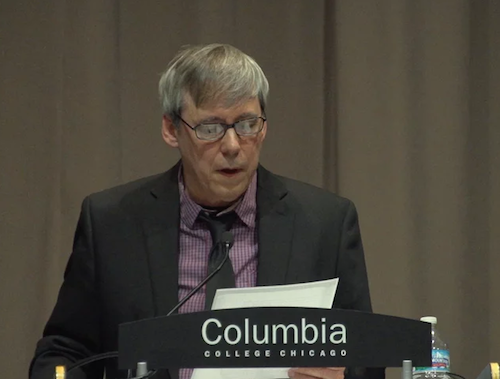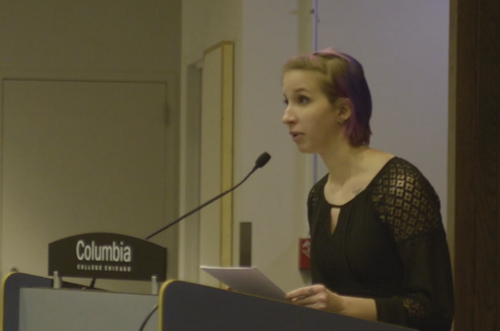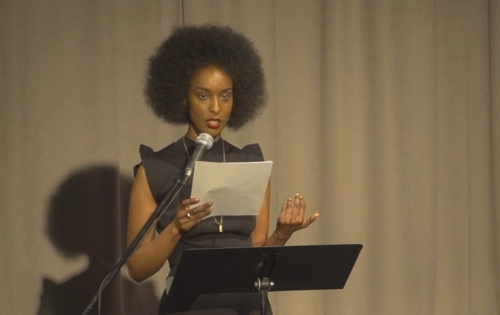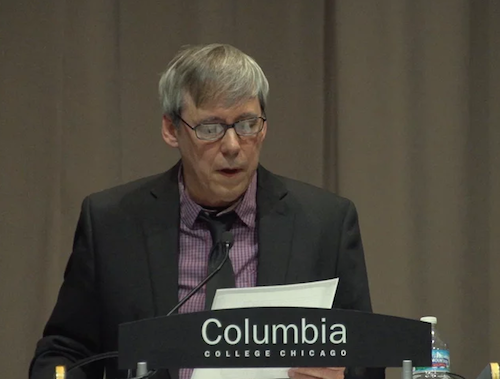
Preparing to Give a Reading

Liz Forsythe (Poetry MFA 2016) in the spring Department of Creative Writing reading series
When people ask me what exactly an MFA is and why people take time out of their lives to pursue an advanced degree in the arts, they’re usually disappointed in my answer. It’s a short answer, one that took me about a year to settle on: we pursue an MFA to become better writers. The truth is that an MFA involves far more than just becoming a better poet (or other artist). You make connections with established and emerging artists. You talk about your craft with people who can discuss it with a higher level of attention and understanding than the average person. And you learn how to prepare that writing for others to experience. I’ll be opening for one of the Department of Creative Writing readings this month, so that last one is on my mind right now.
Assembling a manuscript that will become your thesis involves considerations of poem quality and order, something that I think many writers pick up intuitively simply from being well-read, but you can’t just rely on your gut to get you through putting a book together. It’s why we have a thesis development course in the poetry program. And you shouldn’t rely on simply your instincts when selecting poems for a reading. I am lucky enough to have two events occurring just before I open for Sarah Gorham and Vu Tran: my thesis development course is requiring me to submit 10-12 pages of my manuscript-in-progress and I will be reading in the 33 Reading Series, hosted by Columbia writing grad students.

Ladan Osman reading in the spring 2016 Department of Creative Writing reading series
On the surface, that’s all kind of terrifying. Wednesday I need to turn in something I’m calling a manuscript-in-progress, Thursday I am reading in front of my fellow graduate students and guests for 8-10 minutes, and then the following Tuesday, I read for five minutes before established writers in front of a not insignificant number of people. That’s in addition to all of the other responsibilities of grad school and work. But those two requirements essentially force me to do the two things you should do for any reading: mull through your poems and find the best ones that might have a thematic connection or arc of some kind and then read them.
I won’t be going into the 33 Reading Series having not read aloud the poems I’m reading — there’s a kind of rudeness to that unpreparedness, I feel — but it will be a great time to test how fast I actually read in front of a crowd and if some poems go over better than others. Unless you’ve done a fair bit of reading or performing in public, it can be easy to go faster than you expect and be done too soon, even if you’ve read and practiced everything at home.

David Trinidad reading in the spring 2016 Department of Creative Writing reading series
By the time this post goes live, the reading will have come and gone, which brings me to another thing you should be thinking about: no matter how anxious or nervous you are before a reading or another event, it’s soon in the past, leaving you more prepared for the next one, and it’s always worse in your head than in the reality of it. That goes for your first graduate workshop, your first submission to a publication, the first time you ask a professor to look over your poems in the hopes that they’ll be your thesis advisor, and I could go on, but you get the idea.
